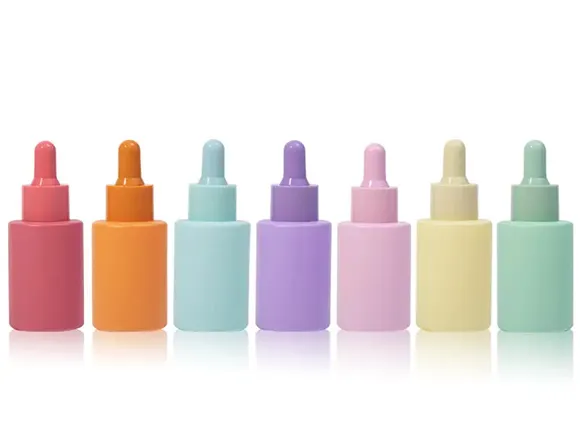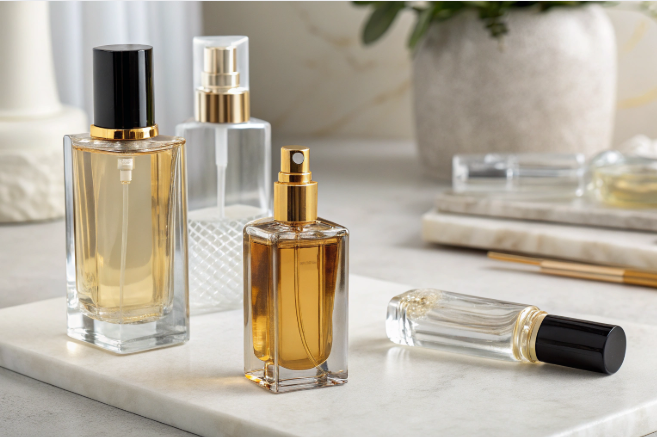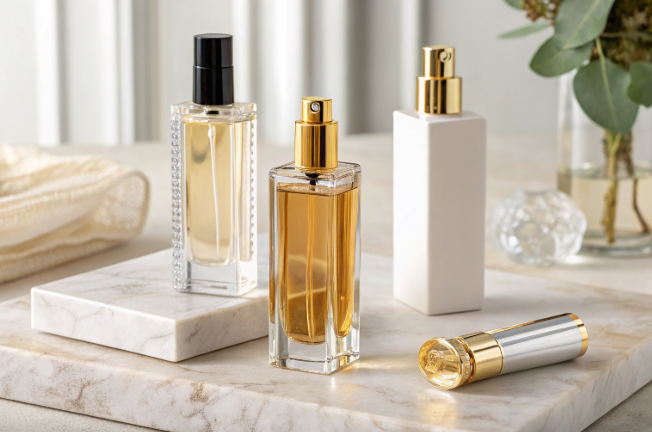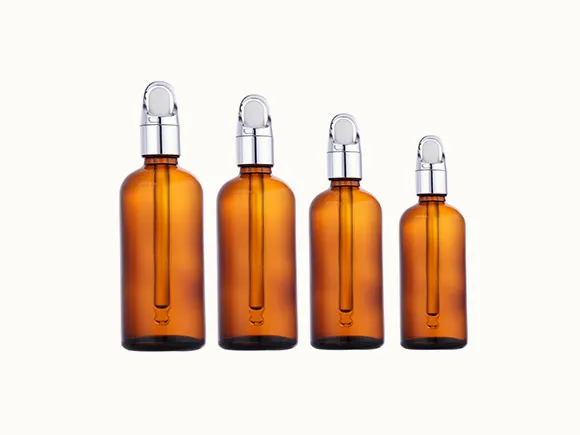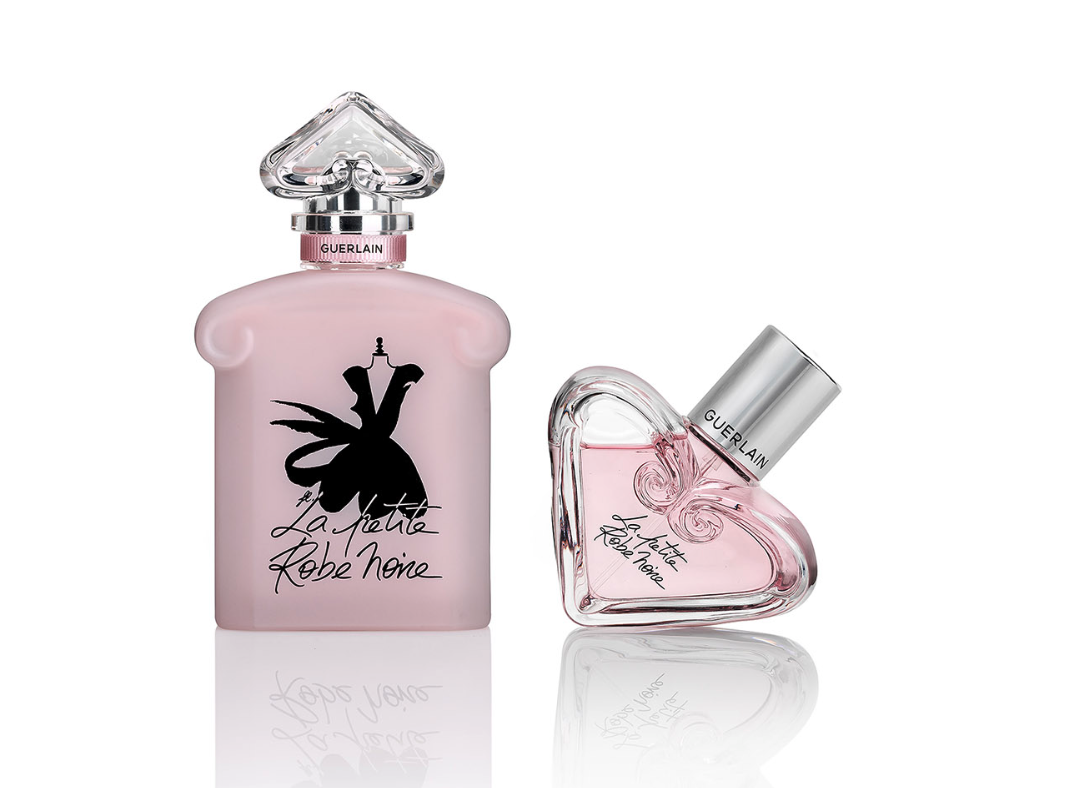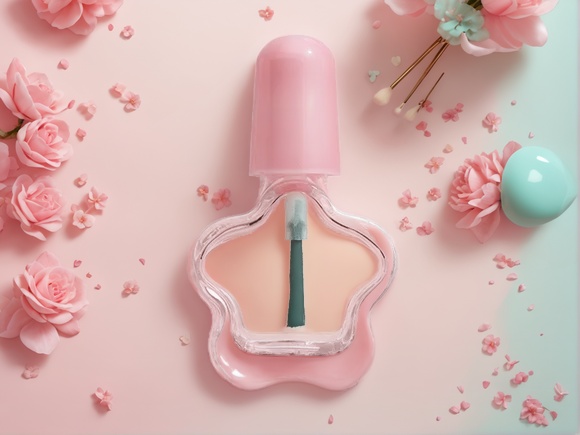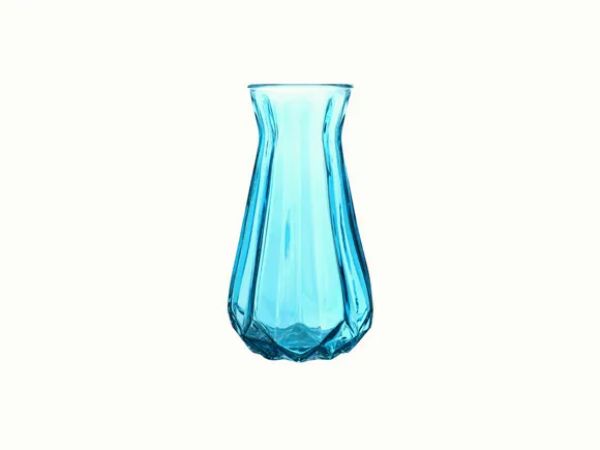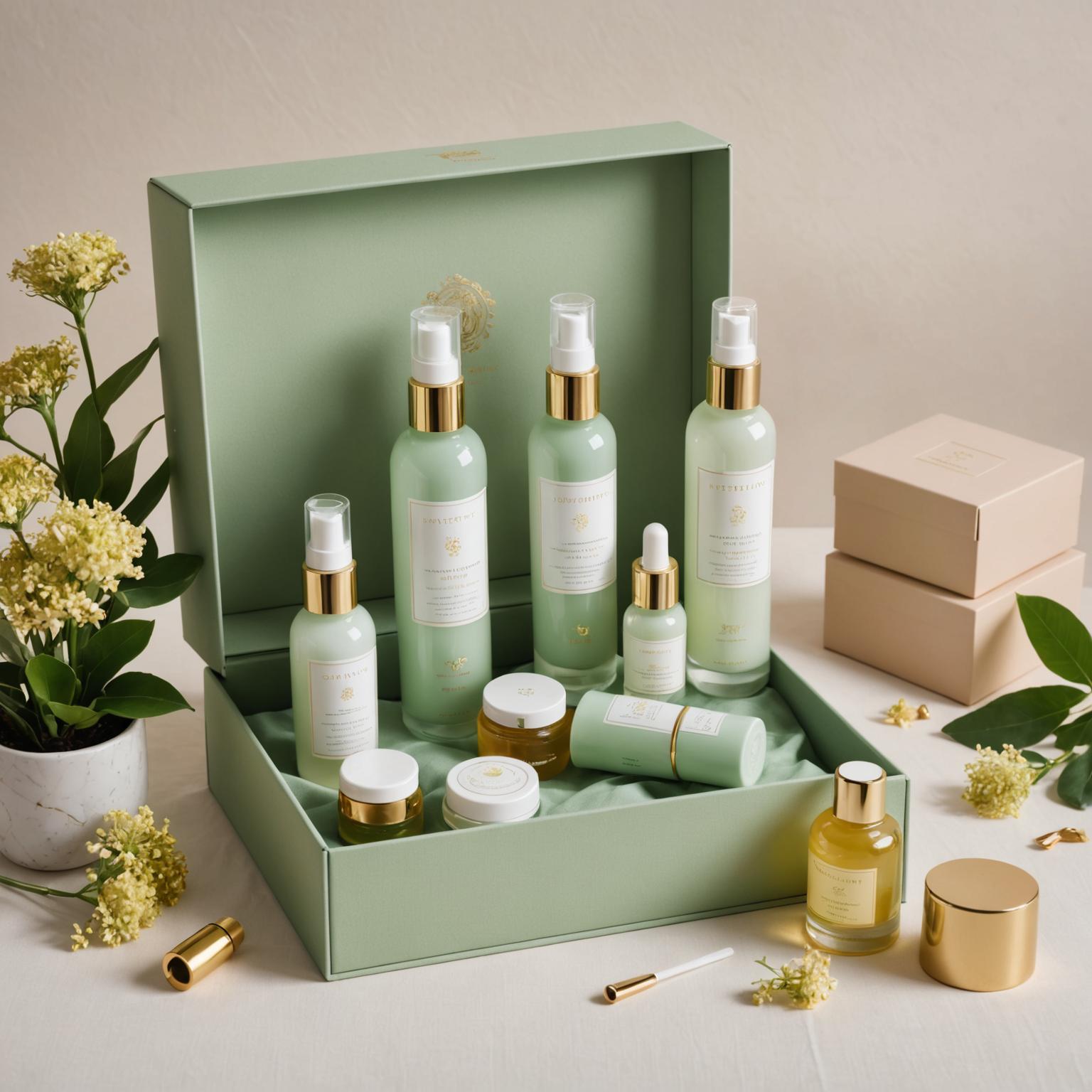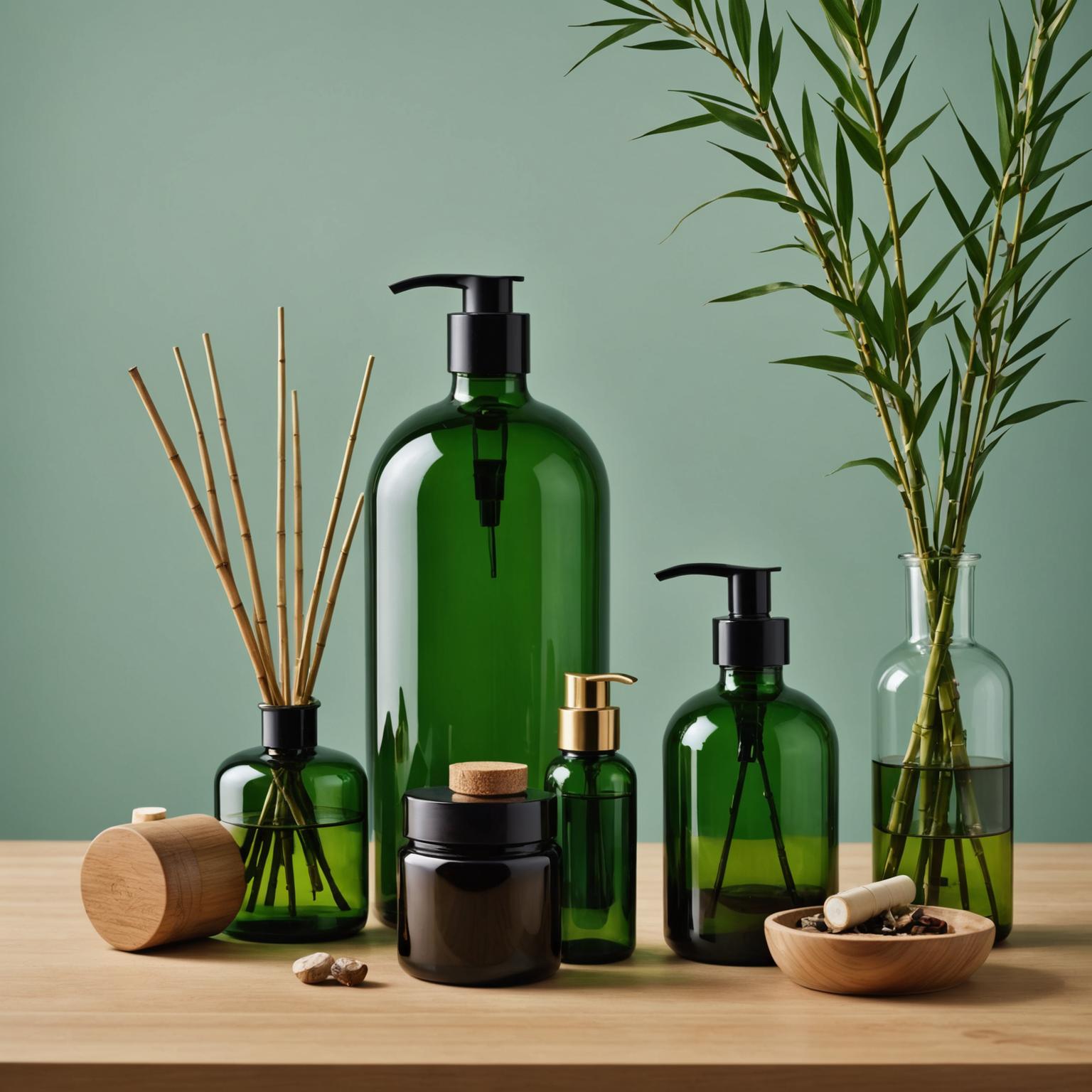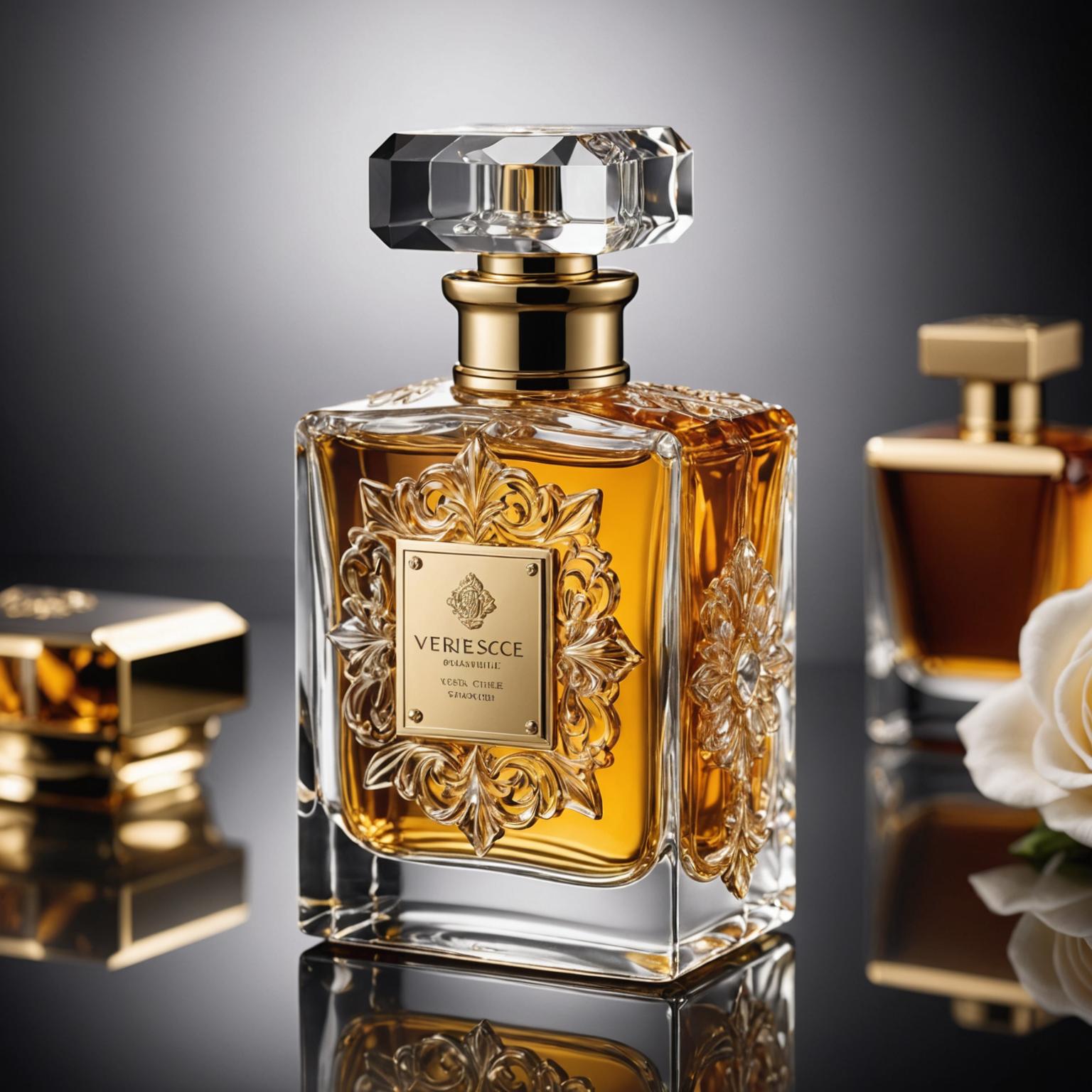Not all bottles are created equal—especially for perfume.
While it is possible to store perfume in certain plastic bottles short term, glass is the far superior option for preserving scent integrity, avoiding chemical leaching, and maintaining luxury perception.
Can you put fragrance oil in plastic bottles?
Yes, but only if you're using the right plastic—and for the right timeframe.
Fragrance oils can be stored in plastic bottles made of PET or HDPE, but long-term storage may lead to chemical breakdown, odor distortion, or plastic damage.
Is perfume better in glass bottles or plastic bottles?
If your goal is quality and brand trust—go with glass.
Perfume is better stored in glass bottles because glass is inert, non-reactive, UV-blocking (when amber), and does not alter the scent over time.
Benefits of glass:
-
Zero interaction with the liquid
-
Preserves fragrance for 12–24 months or more
-
Supports luxury aesthetics and shelf presence
-
Easier to sanitize and refill
For this reason, nearly all premium fragrance brands use glass as default packaging.
What is the best material to store perfume in?
In terms of performance and perception—glass wins again.
The best material for storing perfume is amber or clear glass with a tight-sealing spray or stopper cap, ideally paired with a rigid outer box for light and heat protection.
Packaging details to consider:
-
Amber glass = UV protection
-
Atomizer spray = Controlled dosage
-
Stopper = Classic, vintage style
-
Rigid box = Additional insulation from light/heat
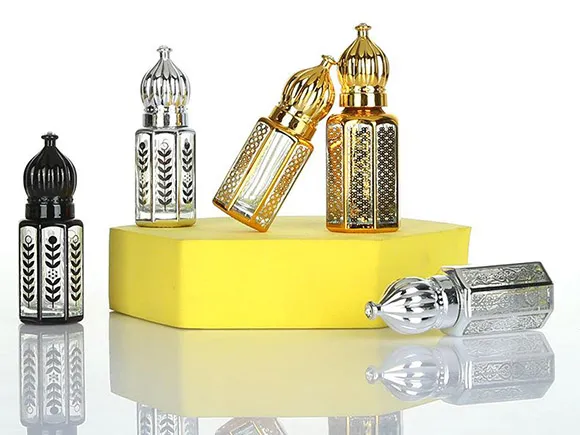
Why is perfume not in a plastic bottle?
Because plastic can't keep up with the chemistry.
Perfume is rarely stored in plastic because alcohol and aromatic compounds can react with plastic, causing degradation, leaching, or alteration of the fragrance profile.
Reasons plastic is avoided:
-
Absorbs scent molecules—leaves behind “ghost fragrance”
-
Can deform when exposed to alcohol
-
Not compatible with the image of premium/perfume category
-
Tends to break down under sun or heat
Luxury is not just in the smell—it’s in the look and feel of the bottle too. There’s a reason high-end fragrances come dressed in glass, while plastic bottles are typically reserved for body sprays and splashes. This isn’t just about chemistry; it’s also a matter of perception and tradition. Most people associate glass with premium quality, elegance, and authenticity—a cultural and marketing choice as much as a practical one. When you pick up a glass bottle, it signals sophistication and care, making the entire experience of applying perfume feel a little more special.
Is it okay to store perfume in a plastic bottle?
Okay short term—but not if quality matters long term.
It's okay to store perfume temporarily in plastic (like in travel minis or samples), but for stability, longevity, and scent accuracy, glass is strongly preferred.
Travel-safe plastic tips:
-
Use thick PET plastic (travel atomizers)
-
Store under 100ml to meet airline limits
-
Refill from master glass bottle, not the other way around
-
Use dark-colored plastic to block light
For full-size retail or brand-grade packaging, plastic is not the standard.
Is it OK to put oil in plastic bottle?
Applies here too: it depends on the type of oil and plastic.
It’s okay to put perfume oil in plastic for sampling or short-term use, but essential and fragrance oils can dissolve certain plastics over time.
Considerations:
-
Avoid essential oil blends with citrus or mint in soft plastic
-
Never use recycled plastic unless it’s food-grade certified
-
Match your oil’s chemical profile with plastic resistance
If you're building a perfume or oil brand, use plastic only for testers or travel sets—and use glass for the final product.
How can you tell if your perfume is reacting with a plastic bottle?
Testing compatibility between your perfume and a plastic bottle is part observation, part common sense chemistry. Start by pouring a small amount of your fragrance into the plastic container—preferably PET or HDPE if you want the best odds.
What to watch for over time:
- Changes in scent:If the fragrance smells off, muted, or oddly different compared to the original, it might be interacting with the plastic.
- Bottle appearance:Watch for warping, cloudiness, or any apparent weakening of the bottle—especially near seams or the cap.
- Liquid clarity:Discoloration or haziness in your perfume could signal a chemical reaction.
- Odor residue:A lingering plastic or “off” smell on the bottle’s interior points to absorption or contamination.
Monitor the test bottle over several days to a week. If everything looks and smells consistent, you’re probably safe for short-term use. But if you notice any of the above, it's a clear sign to stick with glass for long-term storage.
You’ll find plenty of real-world opinions out there—mostly splitting by how fussy or pragmatic the perfumer is.
Some DIY perfumers report using plastic bottles (especially PET types) for short-term storage, prototyping, or travel, and haven’t run into catastrophic scent disasters. People have even refilled dollar-store atomizers for personal cologne and sometimes found zero issues, especially with lighter formulas.
However, most seasoned mixers and small brands advise erring on the side of caution. Here’s what often comes up:
- Scent changes:Concentrated oils and alcohol can eventually interact with plastic, especially if stored for months.
- Cultural trust:There’s a long-standing perception (reinforced by major players likeChanelandTom Ford) that glass feels more professional, trustworthy, and luxurious.
- Quality matters:Not all plastic is created equal. Lower-quality plastics may leach subtle off-odors or degrade over time.
- Safety first:No one wants surprise toxins—so high-grade, food-safe PET or HDPE is considered a minimum.
For personal use, many hobbyists have safely used plastic bottles for testing and traveling with homemade fragrances. But when it comes to gifting, selling, or storing anything “special,” most return to glass. The peace of mind (and better shelf life) are usually worth it.
Conclusion
Youcanstore perfume in plastic, but it’s not the best choice. Glass remains the gold standard—for scent safety, chemical stability, and luxury branding.
For anyone serious about product quality and consumer experience, custom glass packaging backed by smart box design and atomizer selection is the clear answer.



